Listen Now
About the Episode
Key Topics
- The business of science, why research management isn't anybody's Plan A, and what happened when Maxine decided to step off the treadmill of life as a scientist.
- How Maxine follows what interests her while going with the flow, and how opportunities arise from others recognising her abilities before she did
- What's involved in leading science teams and how Maxine's relationship-based leadership approach is influenced by her cultural heritage
Detours and Tangents
- The complexities of Māori engagement in science and why Māori scientists work a cultural double-shift
- Maxine's interest in molecular genetics and why she chose to study the genetics of pāua (a Haliotis mollusk)
- The joys and discoveries of changing jobs after a long period in one place
Recorded 8 December 2021
Episode Digest
Maxine's squiggly career
- Research management was not Maxine’s Plan A. “I don't think that's plan A for anybody. No one knows that's a thing. I fell into it, like many people.”
- Maxine had an after-school job at a supermarket in Christchurch, New Zealand, which she continued while going to university. “I was doing a science degree. I wasn't super sure what I wanted to do. I just liked science.”
- Maxine got a note from her lecturer on one of her exam papers – ‘please come and see me.’ He said, ‘I guess you’re going to do postgrad?’ Maxine wasn’t planning on it, but her lecturer said she should really consider it.
- That was the start of Maxine’s move into genetics. She picked up some extra courses in her general biology degree to do a double-major, then stayed on to do honours, then went onto a PhD. She stopped working at the supermarket.
- Maxine’s PhD was looking at characterising the actin gene family and pāua which is a Haliotis mollusk (sea-ear is its common name). It started out as a traditional science, molecular genetics project where Maxine was pulling out the genes, sequencing them, figuring out how many there are, looking at the translation and how they're working, how they're being expressed and what that means about how they work. Part of the project was also looking at the molecular evolution, applying phylogenetic techniques to understand what that can tell you about the evolution of the gene family, and also the evolution of animals. Mollusks go very far back in the evolutionary tree, but are largely overlooked for some reason compared to work on mammals and invertebrates. “I just found that interesting.”
- The PhD was a difficult time. Both of Maxine’s parents died during her study, and the pāua were really hard to work with. “By the end of it, I didn't see myself going through that treadmill of life as a scientist. I just could see the drama and the politics within the department that I was in. It was just that people – and this is no disrespect to those former colleagues – just worried about stuff that didn't really matter. I didn't want to be that person. So I left.”
- Towards the end of her studies, an opportunity came up to be a sales specialist at a life sciences company, so Maxine did that job for a year. “It didn't really ring my bell.’
- Looking for other opportunities, she saw a job come up at the university for something called the Performance-Based Research Fund project. She applied and got it. “That was the start of my research management career. I've never had a very planned career. I got the job at the university cause I needed a job. And then other people said, you should apply for this job, you should apply for that job. I presume that's because I was conscientious and doing a good job. And they kept me.”
- Research management is not really something you’re aware of as a scientist. “If I was being flippant, I'd say it's full of failed scientists, but that's not true. There are a lot of people with science backgrounds and they become disenfranchised with science and they see this other thing which plays to the skills that they have and it still keeps them in science.”
- Maxine’s next role was in the research office as a fixed-term role also working on the PBRF, working quite closely with HR on rules around staff eligibility and participation. “That was really useful because it gives you a really good grounding in HR practices and how employment works and that data systems aspect.” From there, Maxine moved into another role, working on the university’s new researcher profiles website, doing business analysis and working closely with IT.
- Next was a role looking after the IT systems that supported PBRF and the university’s research website, and from there Maxine ended up becoming the university’s PBRF manager.
- Following the 2012 PBRF exercise, the university had a restructure, which resulted in the creation of a new Research Services Manager role, which Maxine got. “The difference there was that I looked after PBRF systems and I also took on pre-and-post-award funding. Quite a big job, I was second-in-command to the director in that research area. Then the director left and my role got elevated into associate director.”
- “When you're in a job at a university like that, they do want you to be thinking about your development. I was a bit worried about the formal learning aspect of what I did. That's something that's ingrained into us, that you're not validated until you've got the piece of paper, because of our ‘go to university and then you'll be somebody’ culture.” But for Maxine, it was more thinking about the most appropriate way for her to learn what she needed to learn.
- A lot of people in Maxine’s office had already done a project management qualification, and she knew that was a really useful thing to do based on their feedback. So she became a qualified Project Management Professional through the PMI. She also did a variety of on-the-job training including four-quadrant leadership, women in leadership training, and some Institute of Director courses.
- “It got to a point where I did a course and I thought that just explains everything I already know and just puts it into context. Then you get to that stage where you think actually I've got enough experience. Now it's really just about the mentoring or what you learned from others or thinking about yourself in the workplace and in thinking about how you behave and react.“
- After being at University of Canterbury for 15 years, Maxine was quite keen for a change. She saw jobs at AgResearch which she thought would be a really interesting switch and well-suited for her range of experience. She was also interested to see how a Crown Research Institute worked differently to universities.
- At time of recording, Maxine has been Associate Director of Research Investments at AgResearch for about a year.
The Red Thread
- Rather than actively following her curiosity, Maxine describes herself as more of a ‘go with the flow’ person. “I just enjoy what I'm doing and I try and do things well, and then things come. And I'm open to whatever is happening. Maybe that's curiosity by stealth? I don't know. I just find things interesting. And I pursue them. I think I'm a conscientious person and I am also a ‘give it a crack, can do’ kind of person. I'm an old school Kiwi.”
- Maxine contrasts this approach to the scientists around whom she has spent so much time. “They are so driven about what they do. I don't think I probably had that drive. The particular scientific question was just the thing I was working on. It wasn't my life's mission.”
- Being interested in similar things to those around her, but for different reasons, helped Maxine better know herself. “It's about understanding what are the bits you like. I like being organised. I like creating order, I like doing a good job, I like being a team player. Those attributes and skills suit being a research management professional, where you're really about helping others have the glory.”
- Leadership has turned out to be a great fit for Maxine. “One of the things that's great is that I can just come in and see what people are doing and sprinkle some money here and there and then leave and go somewhere else. I can see the value of what they're doing. I can identify with their passion. I like to hear about what people are doing and how cool it is, but I don't have to do it. And I don't have to deal with that drama at the lab bench.”
- Maxine still enjoys attention to detail and the ‘detective story’ of looking at little bits of evidence figuring out what's happened over time, but also enjoys being able to focus on the big picture. ”Sometimes I'm worried that I simplify things a lot, but if you don't, you get lost in the details. You need to have a very simple view of what's happening and then get into more and more detail depending on what you're doing, who you're talking with and what the issue is. The problem is sometimes if you get stuck down in the detail too much, then you can't see the big picture and you do get lost, you do lose the excitement a little bit.”
- Ultimately, the excitement for Maxine comes from being part of something larger whose values she shares. “We all participate in science and organisations like this because we believe in what we're doing and we see value in it. It's a values-based organisation It's not just showing up from nine to five and putting your timecard in and punching it out at the end of the day.”
- When I asked Maxine what she was going to do after wrapping up our call, her response spoke volumes about who she is. “I'm about to go and try and change my toilet seat. Our toilet seat's broken, so I'll give that a crack.” She relates it back to when she was nervous about taking on a senior leadership role. “It's just being ready to take the next step up when you need to. At the beginning I thought ‘how do they expect me to do that job? And now I'm like, well, I've done it before I can do it again. How much can I screw it up?’ One of the reasons is because I don't want you to get someone else to come in here, and for me to be looking at them thinking ‘I could have done a better job than that’. You do see other people in jobs and you think ‘What are you doing? What are you delivering? What is your purpose?’ I just want to make sure that I'm not in that sort of space. I want to be making sure that stuff can happen and that the thing you see needs to be done is getting done. Sometimes the best way to do that is to do it yourself.”
Decisive moments
- Maxine has never been particularly career driven. “I don't really understand people that have these 5 and 10 year plans and 'I want to be doing x by then'. I just want to be happy and feeling good about what I'm doing.”
- Maxine’s decision to pursue a PhD specialising in molecular genetics was sparked by a conversation with her lecturer. “It hadn't occurred to me that I could do that and that I was good at it before then. I’d been thinking I'd do conservation or work with animals or something vague and fluffy. Molecular genetics just seemed hard, but it wasn't hard. I'd done well on this exam and the lecturer said ‘you must be planning to do post-grad’, but I hadn't even thought about that. It wasn't until then I thought that was something that was possible. Then I picked up some extra courses and they continued to go well. It's amazing how those little experiences really change your life.”
- “Thinking back to that lecturer and other points in my career, it's really down to other people recognising the ability in me before I even recognise it. I am a self-reflective person, but I don't reflect on myself in that way where I think ‘I'm really good at that’. I've relied on other people to say to me ‘you're good at that, you should do that, you should apply for that job.’ I'm lucky that I've had that, because a lot of people don't have the right people around them.”
- Maxine also reflects that career confidence is gendered. “It's the girl thing as well. Women don't like to put themselves forward, and a woman will only apply for job if she thinks she can do 80% of it, whereas the man will apply if he thinks he can do 30% of it.”
- The satisfaction of the leadership path was brought home to Maxine when she was on the Board of the Australasian Research Management Society and speaking at a university research office conference. “Being able to talk to people about their own careers and about where they might go was a really rewarding thing because the job in itself was just a job. When you can see that people look to you for advice, that gives you that recognition and reinforcement that you are doing something right, but you're also able to help others. That feeling you're actually making a difference for somebody.”
Reflections on practice
- “Until you're in a university research setting, you don't understand what a business it is, and the number of roles and people that are involved in not just doing the science, but helping it happen.”
- On what keeps Maxine busy as Associate Research Director of investments: “It's called investments because we invest funding, but also people's time into supporting science. I have six teams and they're all focused on supporting the research life cycle. Each of those teams will support different parts from the planning to the funding, to the dissemination, to the impact and the improvement. The research office funding team help people bring in contestable funding to do the research that they want to do. The support team has all of the administrative support for the science teams, helping manage subcontracts and doing invoicing and helping science teams run day to day, doing purchasing, etc. Animal ethics office makes sure the work that we do is appropriate and ethical and that we go through legal requirements to ensure that's the case. They also provide animal ethics services to other organizations across the country and are leaders in that space. The library knowledge services team has a traditional library function, but also information and records management in helping scientists collate and turn it into knowledge. The insights team looks at what we do and provides data and new ways to give us strategic insight, but also supports generation of impact case studies, business cases, those kinds of functions. And the performance team helps make sure delivery of science is working well, they have project management expertise to help provide the framework for science projects to happen, but also specialists that will go in and work as project managers in projects where it's high risk or where a scientist is committed to a whole range of projects and needs some help. And also helping with business efficiency, thinking about business processes and how we can work with our IT colleagues to make sure that we are being as efficient as possible.”
- On balancing investment priorities: “Science organisations are thinking about ‘what's our point of difference?’ Of all the things we could do, why do we choose to do these specific things? Is it because we are the world leader or is it because we need to do it and no one else does it in New Zealand, but we need someone to do it. Or is it stuff that we just do because we've always done it, but it's not necessarily what we should still be doing. And there's a real grey space in the middle where it's stuff we could do, but should we? How do we work with others to get the best outcomes for the country or the planet, rather than all just trying to have a slice of the pie, when basically no-one's getting a meal out of it because it's all getting cut into smaller pieces. The scientists are very passionate about the work that they do, the stakeholders they support. They've often been working with them for decades, they have very close relationships and they're very passionate about their specific thing. But when you're in the leadership and the management space, you need to think about the signals we are getting as an organisation and the things that we need to prioritise. We've got a hundred different things happening but we can really only do 80, so where are we going to invest? That is a very difficult balancing act for us. It's slow cultural change.”
- On how AgResearch is funded: “The government gives us $44 million each year to spend on primary production science and post-farm science, which is about the products that you make after the farm, the services you provide, and also how we help support that end of the value chain. It's over to us how we use that money, but the government contract says two-thirds of your time we want you to be working on farm systems and one-third we want you to be working on post-farm stuff. But at the same time, there's these different markets that we're working with and different partners and they will have different needs, so we also we have a mix of different types of science. 40% of our time we want to be future focused, 30% is medium term, and 30% is now.
- On what kind of science AgResearch does: “It includes things things like how are we responding to food trends? How do we add value to foods? How do we get more value out of wool, how do we improve the quality of meat? How do we improve food safety? We look after primarily animal farming and pasture, so when we are thinking about the science, we are looking at ways of continuing to farm in a way that's socially responsible, in ways that improve animal welfare or reduce climate impact, but also looking at how we can support businesses and farms which may be more productive, or it may be just adding more value to what they're already producing, because in a lot of cases, you can't be more productive without balancing all of the other impacts of that. So we work very closely with industry and we are often guided by them around the sorts of problems that they have and we look at ways that we can do our science to help answer those needs. But we also need to be thinking about the future and the things that our partners might not realise they need yet. We do really future focused research that people may not see the immediate benefit of, but it's important knowledge for the sake of the knowledge and preparing us for the future. If you think about the COVID situation at the moment, we weren't prepared for it and the world as a whole has spent a lot of money on trying to get to terms with it and understand it and fix it. But what we're trying to do is think about issues like that and predict them before they happen so that we can do the research that makes us be ready for when that happens. We do a lot of work on rumen microbiology and trying to figure out how we can stop cows and sheep producing gases that cause climate change. And with alternative proteins, a lot of the work that we do there is taking those products, turning them down into the protein constituents and then rebuilding them into something better is the idea.”
- On Maxine’s approach to leadership: “I think it just comes out of me because of who I am. When I left my last job and came to this job, one of the great things about it was the chance to make a conscious effort to do things differently. I had been at the university for a long time. I was working with people I'd known for a really long time. I thought this is great, I'm going to come into this new organisation, I'm going to try and do things differently, I'm going to have more professional relationships with people, I'm not going to get so personal and attached with people, I'm going to be more objective. And it just doesn't happen. I can't help being friends with people I work with. It makes it difficult when you've worked with people and you have a good working relationship with them, but you don't have a very personal relationship with them. My approach is that hopefully if I have good relationships with people, we'll be working together like a family, I guess, to do the things you need to do. You all pull together to help each other because you want to work together to get the job done. So some of that is relationship-based leadership, but it's also about being generous with your time and your thoughts and to help others.“
- On Maxine’s Māori cultural heritage: “I whakapapa to Ngāti Kahungunu. My mother was from a very small town in the north island called Mohaka. We never spent a lot of time there growing up. My parents were in the air force and they traveled around a lot. My dad retired from the air force the year I was born, which is why we settled in Christchurch, which was where his last posting was. I've come to realise that the influence of my mother, her being Māori and the way she was raised and the experiences she had growing up, is such a big part of who I am. That worldview and that way of being, it's just normal. If you're growing up, and you don't hang out with a lot of other Māori people, you don't necessarily see that as being Māori. But that makes sense to me now and why we do these things the way we do. If you start to look at that relationship-based leadership and wanting to look after others, that's a big part of it, isn't it?”
- On care and hospitality: “In the Māori world there are terms used to express particular principles, one of which is manaakitanga, which is you try and look after others, and whanaungatanga, which has to do with the relationships that people have. That's part of this caring for others and looking after others and wanting to provide hospitality and make other people feel comfortable. That was when I started to think, actually, that's probably why we are the way we are.“
- On working with Māori organisations: “For people that have worked with Māori organisations, you will know that building relationships with Māori organisations takes a long time, particularly in science sectors. It's that classic thing that we have where scientists think ‘I need to engage with Māori. Can I ring them up? Who can I talk to? It's due next week? Can we sort it out?’ That's not a successful approach. I think people are learning now that they will work with you when they know you and they trust you and they like you. They want to see that real relationship, and once that's in place, you're sorted and the rest will happen and they will fix it for you and you will be family. That's probably very similar to the way that I am.”
- On the concept of whakapapa: “In its most basic terms, whakapapa is where you come from. It's like a family tree. But for Māori, it's much more, it's a really deep thing about your connection with your family and your place and where you're from. So normally when you do a formal greeting, you would run through your whakapapa and you would start with the land forms from where you come from and start at the top and work your way down to who you are at the bottom. So it's recognizing the past. When you're meeting people, it helps people to form that connection, to understand who you are, where you're from. It gives them the cultural history of what you're likely to be like, who you might know, what history you've been through. Do I like those people? Do I not like them? Maybe we’ve had issues in the past. That's quite basic, but obviously for people who have much stronger connections to Te Ao Māori, the Māori World, they would be talking about lots of other details. They would be bringing in different iwi affiliations, talking about particular well-known ancestors, and that helps people understand who you are and that they knew your grandmother or something.“
- On working a cultural double-shift: “That is something that is problematic for our Māori scientists, because they are Māori and they are expected to give of their time and help others navigate the cultural landscape. If you're in a university, you've got to have Māori representation on committees. And if there's only five Māori people, then they have to try and make it work. Meanwhile, they spend most of their time trying to serve the needs of others without actually doing their own work and serving their people, which is often what they're there to do. It's really hard, and the government, although they are putting these things in place to try and support it – which is awesome – does put a lot of pressure on not just Māori scientists, but Māori organisations. All these Māori organizations are being inundated by people wanting to talk to them and get help from them. I heard someone speak once about that and saying, you come in, you want to take all of our knowledge and then take it away and give us nothing in return. So why would we want to do that? Helping Pakeha understand that is useful. It's not just about putting the policy in place, it's about how you service the policy when you don't have enough people and capability or capacity to do that. Things like the National Science Challenges and the Centres of Research Excellence, they all have to try and respond to Vision Mātauranga. So they're trying to find people with the right expertise to participate. They're putting a lot of responsibility on scientists who are really quite junior, but because they're Māori they are doing it. So you've got one Māori scientist who just happens to be Māori and all of a sudden you are representing the whole race.”
- On job satisfaction: “If you're not happy in your work, it will end up spilling over into the rest of your life. So either change what you do, change your attitude to what you are doing, or do something else. One of the things that I'm really keen on at the moment is getting people to change their jobs. I’m thinking about the opportunities I've been given and the support I've been given by my managers and colleagues, and wanting to do that for other people. Right through that process of thinking ‘that's too big a job for me, I couldn't do that job, oh my God that's really scary, I don't know what I'm doing, no I think I could do it, I'll do it, I'll put in my application in’. To actually going through the interview, reflecting on what you've done, what your skills are, and then getting the job and then recognising how much you actually know when you go into another organisation. Particularly when you've been in a place for so long, you lose sight of how much you've learned, how much you've grown, what you actually know. It's been such a positive experience for me and has taught me so much about myself and made me see myself in a whole new light and I've just been really happy. I would like to hope other people would do that and have a similar experience.”
Stuff We Mentioned
Organisations
Information
- NZ Govt green paper on future pathways for the research system
- Research paper 'He aronga takirua: Cultural double-shift of Māori scientists'
- Maxine's PhD thesis
- Ngāti Kahungunu ki Wairoa
Audio Highlights
Episode appetiser - Building relationships with Māori organisations (27 sec)
0:00
/0:27
Why research management was not Maxine's Plan A (24 sec)
0:00
/0:24
The life-changing experience Maxine would gift someone (51 sec)
0:00
/0:51
The difficulties of prioritising research investment (30 sec)
0:00
/0:30
What Maxine enjoys about research management vs being a scientist (49 sec)
0:00
/0:49
About Maxine Bryant
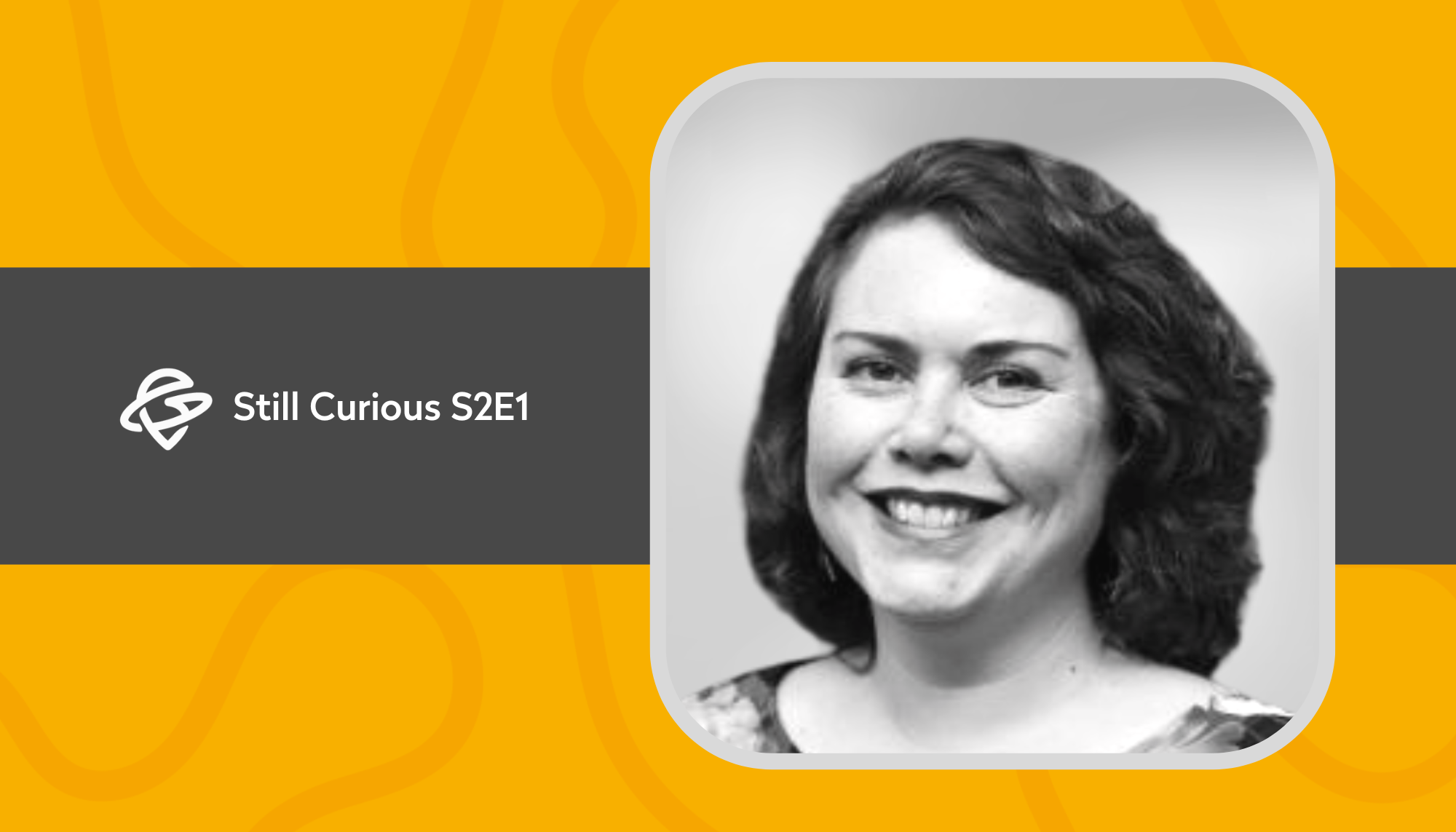
Maxine Bryant is an experienced team leader, project manager, and research management professional with fifteen years experience in the tertiary sector, specialising in operations management, system development, and policies and process.
Prior to joining AgResearch as Associate Research Director Investments, she worked at the University of Canterbury for fifteen years in a range of roles including project managing the development and implementation of various research management tools, Performance Based Research Fund Manager, and Director of Research Services (managing pre-award and post-award research office functions). In these roles she worked closely with colleagues from the academy, Human Resources, Library and Information Technology Services.
Trained in biological science, Maxine holds a PhD in molecular genetics from the University of Canterbury. She serves on the Australasian Research Management Society (ARMS) Board, is an ARMS accredited training fellow, member of the ARMS New Zealand and Pacific Islands Chapter Committee. She is also a Certified Project Management Professional.
Maxine whakapapas to Ngāti Kahungunu ki Wairoa.
Prior to joining AgResearch as Associate Research Director Investments, she worked at the University of Canterbury for fifteen years in a range of roles including project managing the development and implementation of various research management tools, Performance Based Research Fund Manager, and Director of Research Services (managing pre-award and post-award research office functions). In these roles she worked closely with colleagues from the academy, Human Resources, Library and Information Technology Services.
Trained in biological science, Maxine holds a PhD in molecular genetics from the University of Canterbury. She serves on the Australasian Research Management Society (ARMS) Board, is an ARMS accredited training fellow, member of the ARMS New Zealand and Pacific Islands Chapter Committee. She is also a Certified Project Management Professional.
Maxine whakapapas to Ngāti Kahungunu ki Wairoa.
Connect with Maxine
Interactive Transcript
Note: This is a machine-generated transcript and may contain errors.

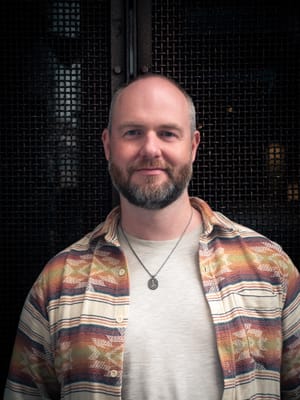
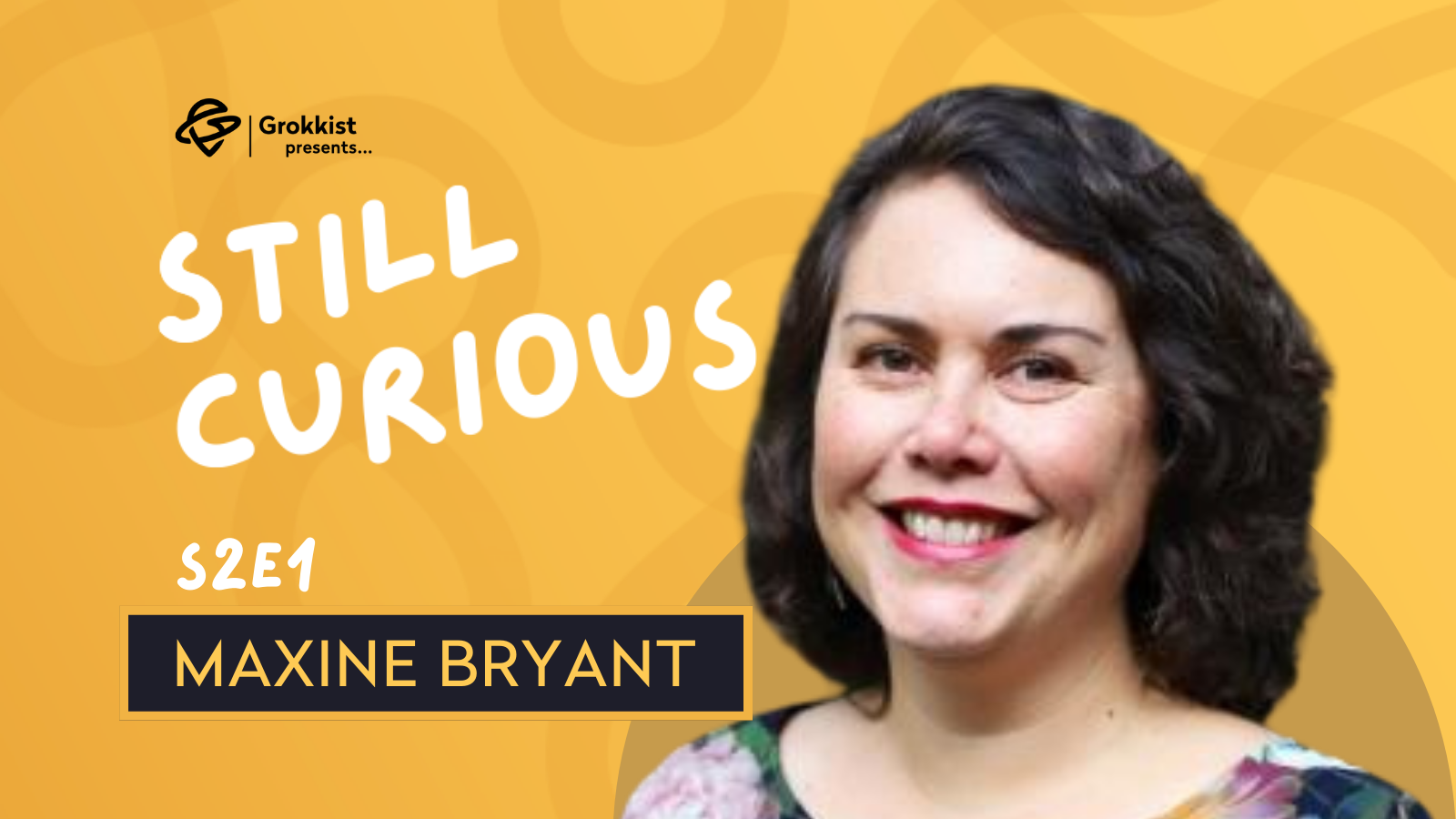
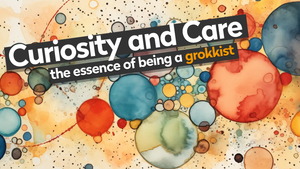


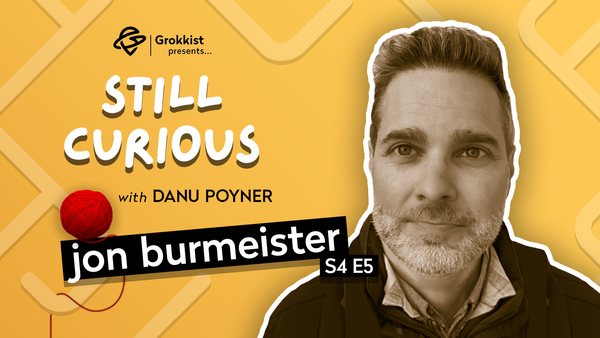
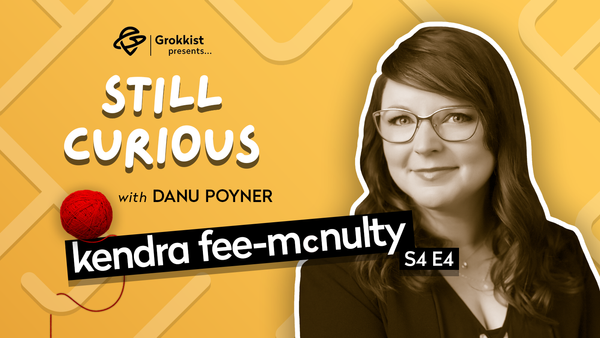
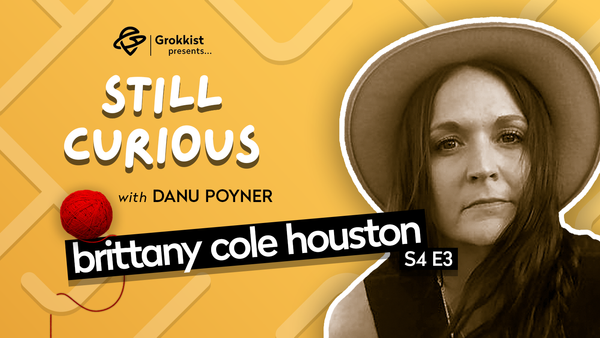
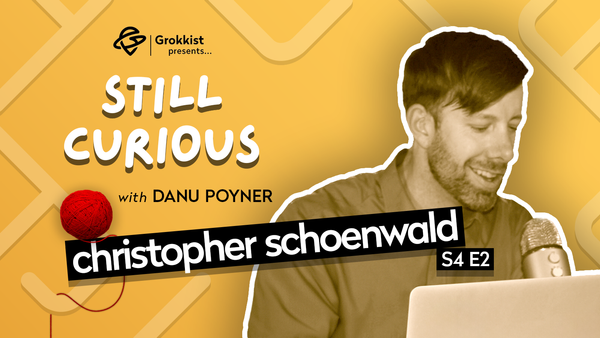
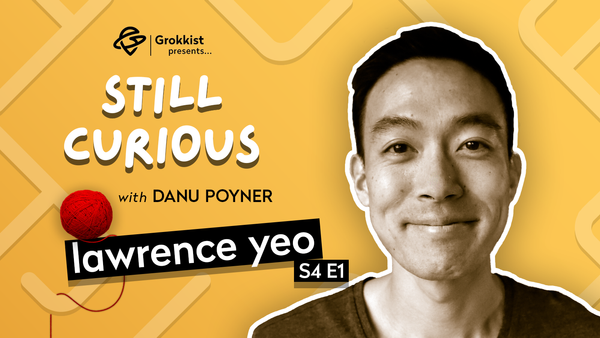
Member discussion